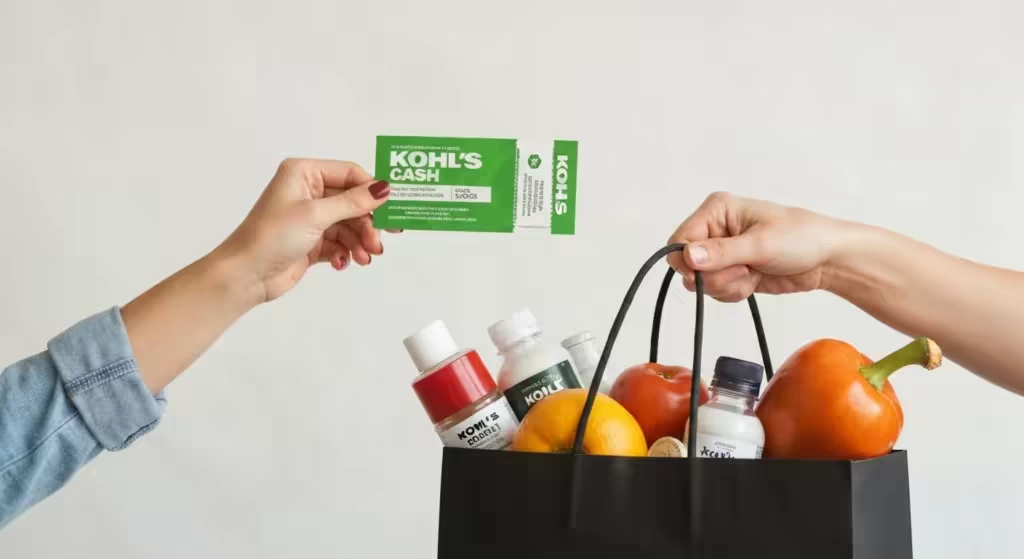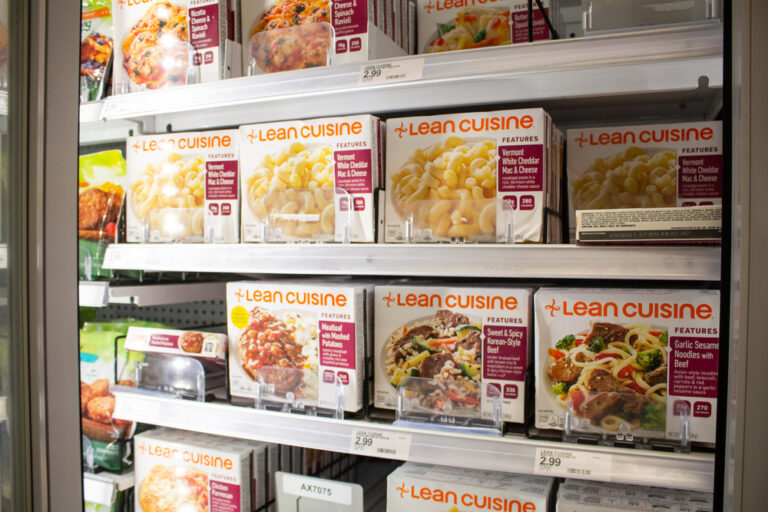These so-called cheap Aldi products aren’t actually cheap!
To buy or not to buy? With the rising grocery prices these days putting a squeeze on household budgets, it’s no wonder that so many of us ask ourselves this question while standing in the supermarket aisle. Every dollar counts, and making smart decisions on daily necessities has become more critical than ever before. We find ourselves scrutinizing labels, comparing prices per ounce, and trying to decipher whether a perceived bargain is truly a good deal.
From the moment Aldi opened its doors in the US in the mid-1970s, the German-based grocery store drew the attention of shoppers who love a great deal and are more than happy to save some bucks on their grocery bills. Its unique, no-frills approach—requiring a quarter deposit for a shopping cart, encouraging customers to bring their own bags, and displaying products in their shipping boxes—was a novelty. This stripped-down operational model immediately communicated a clear message: we cut our overhead to pass the savings on to you.
That’s exactly Aldi’s mission: to provide the lowest prices possible on its products without compromising on quality. Having over 1,600 stores across 35 states and still expanding, it’s somehow similar to Trader Joe’s in its delivery: 90% of its products consist of Aldi-exclusive brands, which is one of the main reasons why things at Aldi are so cheap. This focus on private labels allows Aldi to control the entire supply chain, from production to pricing, avoiding the “brand tax” that comes with stocking nationally recognized names. This strategy is the bedrock of their reputation for affordability and a key reason for their loyal customer base.
Now, we won’t try to convince you that Aldi isn’t great, because this is far from true. For many staples like milk, eggs, bread, and canned goods, their prices are often unbeatable. However, it’s important to keep in mind that every store can’t be everything to every shopper, and a savvy consumer knows that the lowest price tag doesn’t always equal the best value. There are many reasons to do your grocery shopping here, but there are also times when a trip to another supermarket is a better decision because you’ll wind up spending less in the long run, either through better quality, larger quantities, or strategic use of sales and coupons.
This being said, today we’ll take a look at what most people would call cheap Aldi products. Why? Because a closer examination reveals they aren’t, in fact, cheap! We’re diving deep into the items that look like a bargain on the shelf but might end up costing you more through waste, poor quality, or simply because better deals are readily available elsewhere. Let’s get started!

1. Berries
When it comes to cheap Aldi products, most shoppers swear by the attractive prices on fresh produce, especially berries. If you buy strawberries, raspberries, or blueberries at Aldi, you may be shocked to find them bad, moldy, and bruised after just a few days. It’s true that you pay less for these delicate fruits at Aldi, but according to consumer experts, their quality and shelf life aren’t as great as you’d wish. This short lifespan means you’re often not just wasting your money, but also the food itself, which completely negates the initial savings.
The core of the issue often lies in the supply chain. What you can do is skip the fresh berries at Aldi and do your groceries at a larger store that can rotate produce at a much faster pace due to higher foot traffic and more frequent deliveries. Or, better yet, go to your local farmer’s market during the peak season for the absolute freshest options. In other words, more frequent deliveries mean fresher produce that will last longer in your refrigerator, giving you more time to enjoy it. When you have to throw out half a container of berries, the price you paid for the edible portion effectively doubles.
2. Wine
Wine is also on most of the lists with cheap Aldi products, but we’re here to take this bit of information with a critical eye. When it comes to buying wine at Aldi’s, consumers are split, and for good reason. Some of them swear by the grocery store’s incredibly low-priced options, like the famous Winking Owl line; others, particularly those with a more developed palate, prefer to get it from somewhere else, citing a lack of complexity and character in the budget bottles.
The good news, though, is that it’s almost impossible to find a single bottle here that costs more than $10, which is fantastic for a casual weeknight glass. If you consider yourself a wine lover or a connoisseur, however, we have some bad news for you: Aldi in Europe and the UK has a larger and more critically acclaimed selection of affordable wines compared to what you can find here in the US. The American selection tends to be more limited and focused on very basic, fruit-forward styles.
Moreover, it’s difficult for Aldi to compete with Trader Joe’s wider and just as affordable range of wines, including its infamous “Two Buck Chuck,” which has become a cultural phenomenon. Trader Joe’s has curated a reputation for finding surprisingly good international and domestic wines at low prices, offering a more adventurous and varied shopping experience for the budget-conscious oenophile. Aldi’s selection, while cheap, often feels less curated and more generic in comparison.
3. Name-brand cereals
According to savings experts, one of Aldi’s rules is that if they can’t make a private-label product better and cheaper than the branded one, they will stock the name brand. This is often the case with popular cereals. Most shoppers will say that cereals make the list of cheap Aldi products, and if you’re one of them, you may want to think again before tossing that familiar box of Cheerios or Lucky Charms into your cart.
The truth is, Aldi’s own Millville brands are limited when it comes to cereals, so to meet customer demand, they stock a small selection of national brands. Because this goes against their core business model, expect to pay more for those marshmallow morning delights and corn flakes. Personal finance expert Laura Greutman says that cereal boxes can be more than $3 per item extra, which is much more expensive than a traditional supermarket, especially when the product is on sale there. You’re better off checking the weekly flyers for your local grocery chains, which frequently offer BOGO (buy one, get one free) deals or deep discounts on these exact same cereals.

4. Chips
There are many cheap Aldi products, but chips aren’t always one of them, depending on how you measure value. The store has its own brand of snacks called Simply Nature, and you can find exotic vegetable chips and yellow corn tortilla chips. They also have the Clancy’s brand, which mimics many popular Lay’s and Frito-Lay products.
Yes, the snacks are actually tasty and the price on the sticker is right, but what most shoppers don’t like (and, let’s be honest, who would?) is that the bag is only filled halfway. The classic complaint about “paying for air” can feel especially pronounced here. If it isn’t filled to the brim, it is no longer a bargain. Basically, if you have a smaller quantity in the bag, you’ve actually paid more per ounce for what you’re getting. A savvy shopper always checks the net weight and calculates the unit price.
Moreover, while Aldi’s private-label chips are decent, these so-called cheap Aldi products aren’t always as good in flavor and texture as popular name brands. Those name brands are frequently on sale for comparable, or even lower, prices at other supermarkets, especially during holidays or major sporting events. A BOGO sale on Lay’s at your regular grocery store will almost certainly give you more chips for your money than the standard price at Aldi.
5. Soda
When it comes to cheap Aldi products, there are consumers who swear by the store’s soda as a budget-friendly alternative. They see the low price of Aldi’s Summit brand and immediately see savings. Sorry, but we disagree, especially if you are a fan of the big-name colas.
While Aldi carries its own soda line, which is significantly more affordable than branded beverages, it’s not a suitable alternative for Pepsi or Coke in terms of taste for most people. The flavor profiles are noticeably different, and if you have a strong preference, the substitute just won’t cut it. And if you get carried away and add several bottles of the name-brand soda they stock to your cart, chances are you’ll pay a premium—much more than you would elsewhere.
According to savings experts, soda is significantly discounted in the summer months and around major holidays at many supermarkets, where they are used as loss leaders to attract customers. Furthermore, coupons for brands like Coca-Cola and Pepsi are easy to find, both in print and digitally. By combining a sale with a coupon at a traditional grocery store, you can stock up on your favorite brand for far less than Aldi’s everyday price.
6. Paper products
Paper items like tissues, paper towels, and toilet paper aren’t among the cheap Aldi products, consumer experts say, and this is a classic trap for the unfocused shopper. One of the biggest downsides to shopping here is that the store doesn’t accept manufacturer coupons. You can usually find a constant stream of coupons on paper goods, as well as weekly sales, at other supermarkets and drugstores. This makes a huge difference in the final price you pay.
The quality of Aldi’s Boulder brand can also be a point of contention. Some find the toilet paper to be thinner or the paper towels less absorbent than their name-brand counterparts, meaning you have to use more product to get the job done. This negates any upfront savings. Depending on the size of your family, it may also make better financial sense for your wallet to stock up on paper products at a warehouse store like Costco or Sam’s Club. You can make a price comparison, focusing on the cost per sheet or per square foot, to determine which option is truly better for you.
7. Toiletries
Similar to paper products, toiletries like deodorant, shampoo, or toothpaste aren’t among the cheap Aldi products you should spend your money on. These personal care products are certainly available at Aldi, but what you’ll find on the shelves are only the popular brand names—and rarely at a discount. Aldi typically doesn’t have its own private-label version of these items, forcing you into a purchase that is rarely a bargain.
Similar to buying branded cereals, you’re going to spend more money here on branded toothpaste, shampoos, and conditioners. According to savings experts, these products often go on sale at larger grocery stores, and especially at drugstores like CVS and Walgreens, where you can stack store sales, manufacturer coupons, and loyalty rewards for massive savings. In other words, skip them at Aldi and get them on sale at other supermarkets or drugstores where your patience and coupon-clipping will be rewarded.
By the way, Amazon always has some great prices on shampoos, often with “Subscribe & Save” discounts that can beat in-store prices; take a look!

8. Most meat
Unlike at Trader Joe stores, where meats never go on sale, you can find discounted beef and chicken from time to time at Aldi, often labeled with a “buy now” sticker as it nears its sell-by date. However, many experts recommend approaching these so-called cheap Aldi products with caution; when you see them, it might be better to turn around and walk away, as you’ll often save more money and get better quality by being strategic elsewhere.
Their regular meat prices aren’t really a bargain compared with the weekly sales at other grocery stores, and you can often score them cheaper at your local store by simply checking the flyers. Traditional supermarkets use meat as a loss leader to get you in the door, offering deep discounts on items like chicken breasts or ground beef. The one exception at Aldi is often their organic ground beef, which is a high-quality food product offered at a much lower price here than at almost any competitor, say money-saving experts. That specific item is a true gem.
9. Lunch meat
Looking to buy ham and turkey for sandwiches? This is another category where the allure of a low price can be misleading. Making the switch from a popular brand like Boar’s Head or even Oscar Mayer to Aldi’s private-label cold cuts may not save you much money, especially on a per-pound basis. Moreover, you’ll probably notice a significant difference in quality. According to experts and many shopper reviews, their tubes of lunch meat are similar in price to popular brands but don’t taste as good and can have a less appealing, more processed texture.
10. Baby food
Aldi boasts unbelievable prices on traditionally through-the-roof-expensive formula and diapers through their Little Journey brand. These products alone are well worth the trip to the grocery store if you have a little one you’re trying to keep clean and fed. For these essentials, the savings are real and substantial for many families.
But while you’ll save some money on these cheap Aldi products, as well as baby snacks such as puffs (even compared to what you’d find at Walmart), the store’s baby food selection—specifically the pureed foods in jars and pouches—isn’t a bargain. The selection is very limited, and many well-known baby food companies like Gerber and Beech-Nut offer frequent high-value coupons. You can use these coupons jointly with a sale at a different grocery store or a big-box retailer like Target, which often runs “buy 10, get a $5 gift card” type promotions, bringing your net cost down significantly.
If you liked our article on cheap Aldi products, you may also want to read Buy Them TODAY! These 5 Things Are Cheaper at Target.















One Response
ALDIs is always in trouble for selling horse me. We’re Americans we don’t eat horses